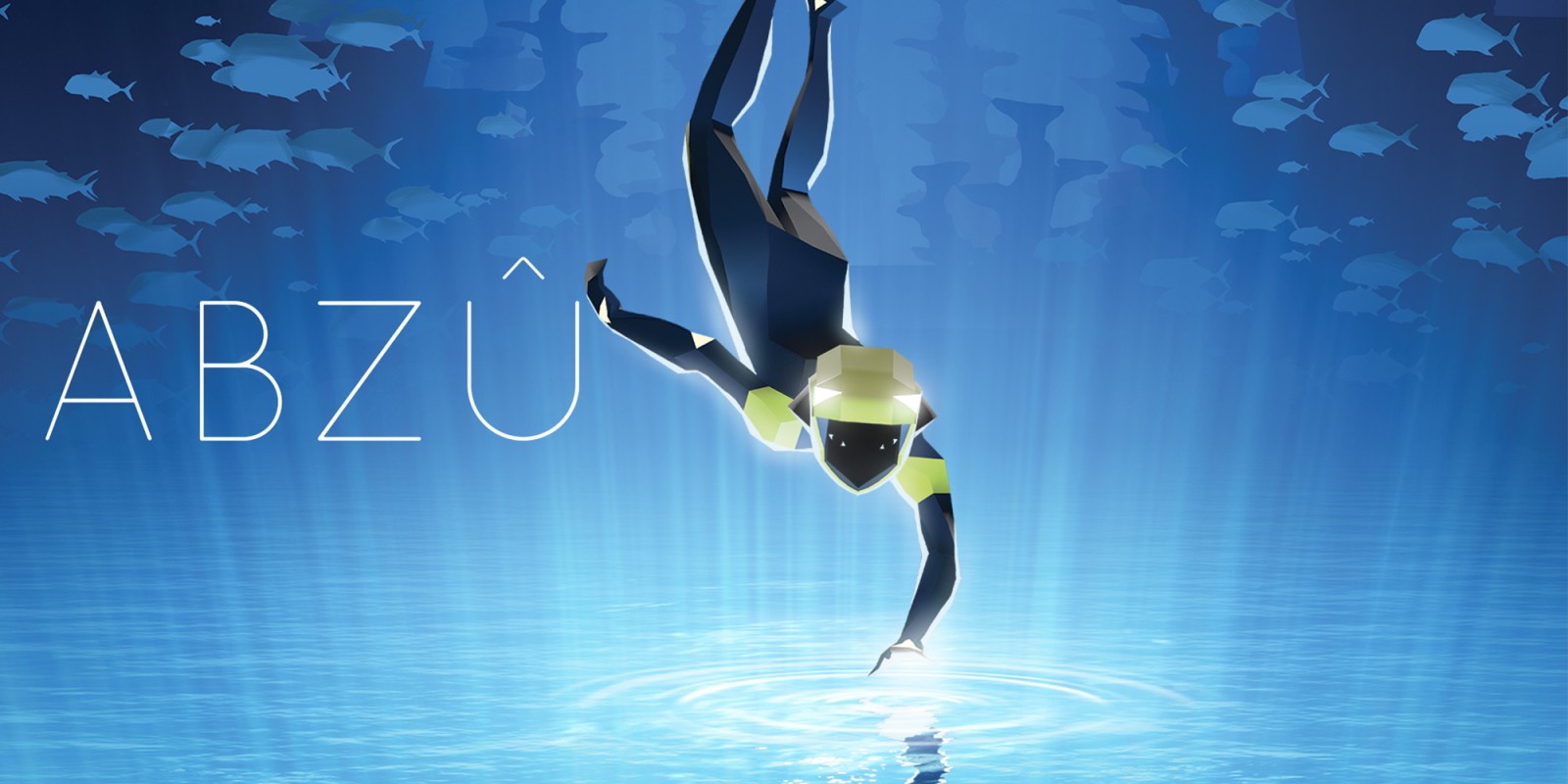
In the game ABZÛ, the player takes on the role of a diver in a part of the ocean. Without any knowledge on himself, the environment, or the purpose of being there, it is up to the player to discover the secrets of the deep sea. During this adventure, the player will swim alongside all kinds of animal life, through underwater environments filled with colourful plants. The deeper the diver gets into the ocean, the more he will discover about the ancient technology, energy of the sea and the submerged ruins. Hereby, the diver does not only figure out more about the environment, but also about the hidden history of the diver himself. With the unravelling of the narrative, the player will discover the diver’s connection to the sea and the responsibility he must carry.
The entire environment of the game exists of an underwater ecosystem. However, there is more than just sea life lurking below. As the player explores the environment, it appears that certain conflict has left the waters in desolate conditions. It is up to the diver to restore the habitat by damaging the ancient technology and by introducing sea life back to certain areas. With these tasks, the game starts a conversation on environmentalism, the pollution of the oceans and the responsibility to preserve its ecosystems. In this environmental discourse, ABZÛ seeks to engage its players into several topics which concerns the balance of the oceans. The game encourages the player to take the right actions in the end of the game, and teaches what kinds of sea life inhabits the oceans.
For further reading
- Sharma, Satyakam, and Kin Wai Michael Siu. "Gaming as a driver for social behaviour change for sustainability." International Conference on Applied Human Factors and Ergonomics. Springer, Cham, 2017.
- Bohunicky. Ecocomposition: writing ecologies in digital games
- Farca, Gerald, Alexander Lehner, and Victor Navarro-Remesal. 2020. "Regenerative Play and the Experience of the Sublime: Breath of the Wild." In Mythopoeic Narrative in The Legend of Zelda, edited by Anthony G. Cirilla and Vincent E. Rone, 205-222. New York and London: Routledge.
- Abraham, Benjamin. 2018. “What Is an Ecological Game? Examining Gaming’s Ecological Dynamics and Metaphors through the Survival-Crafting Genre.” TRACE, no. 2: Ecoplay, Digital Games, and Environmental Rhetoric.

